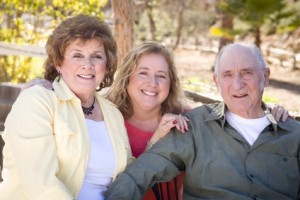 The death of a loved one imposes cruel demands on the closest survivors. You need time and space to handle your emotions, gather your thoughts and say goodbye. Demands are suddenly coming from all sides.
The death of a loved one imposes cruel demands on the closest survivors. You need time and space to handle your emotions, gather your thoughts and say goodbye. Demands are suddenly coming from all sides.
You need to make quick decisions, from funeral arrangements to financial matters, from how to feed out-of-town guests to what to say in the obituary. None of us likes to think about dealing with this sort of thing, however the reality is that at some point in our lives we will probably have to.
It is difficult to think of practical matters when there is a death in the family. There are important things to be taken care of that may have significant effect on the rest of the family’s future. This is where being organized is extremely beneficial.
The following is a checklist of steps to be taken by the survivors and/or executors:
- Obtain an original copy of the deceased person’s last will. Notify the executor. (If at this date your will is outdated or you do not have one please treat this as a reminder to get the job done.) Did you know that 55 – 60 % of adults do not have a will?
- Make funeral/memorial arrangements.
- Put notifications in the local paper. Contact close friends and family. Ask them to spread the word.
- Obtain certified copies of the death certificate. Make a few copies. You will need them.
- Notify the life insurance agent/company. Look into notifying the house insurance and car insurance companies.
- Search likely places (safety deposit box, brief case, desks, filing cabinets, safes, etc) for important papers such as stocks, bonds, bank records etc. This is where it is really helpful if the person is “organized”. You might want to consider having all of your important documents and papers in one file marked “Important Papers”.
- Notify your lawyer and accountant.
- Cancel SIN #, passport, credit cards, and any services such as phone, cell phone, newspaper delivery, bottled water delivery, etc. Keep an eye open for any pre- authorizations. You do not want the Hydro being cut off if there was a pre-authorization going on the credit card you just cancelled.
- Inform the employer to check on benefits available under group plans and or pensions.
- Contact the local Canada/American pension office to arrange a claim for any benefits available.
- Start collecting material related to income tax. A final return will need to be done.
- Contact CPP (Canadian Pension Plan) and OAP (Old Age Pension).
- Remove deceased person’s name from any joint bank accounts.
- Contact companies where the person has any unpaid debts or loans.
- Send notices to business associations, clubs and other organizations to which the person belonged.
- Verify all debts and determine cash on hand.
- Downsize the persons belongings. This is not something that needs to be done right away unless they are in a rental unit. At which point you will want to give notice to the rental company.
- Accept help from family and friends. If people offer to cook, clean, sort, drive, make calls whatever. Accept it with gratitude.
- Take time for self care. When there is a death in the family it usually brings some level of stress. Take time for a relaxing bath, coffee with a friend, an afternoon nap or a walk. You will be better able to take care of all the items on the above checklist.
- Ask for help. If you are having troubles coping with the loss of a loved one (and who wouldn’t) seek out the help of a grief counselors. I work with a couple of very well educated, compassionate, and qualified counselors.
I am available to help you get your papers in order so that it’s easy as possible for both you and your loved ones in the event of illness or death or any other type of tragedy.

Leave A Comment